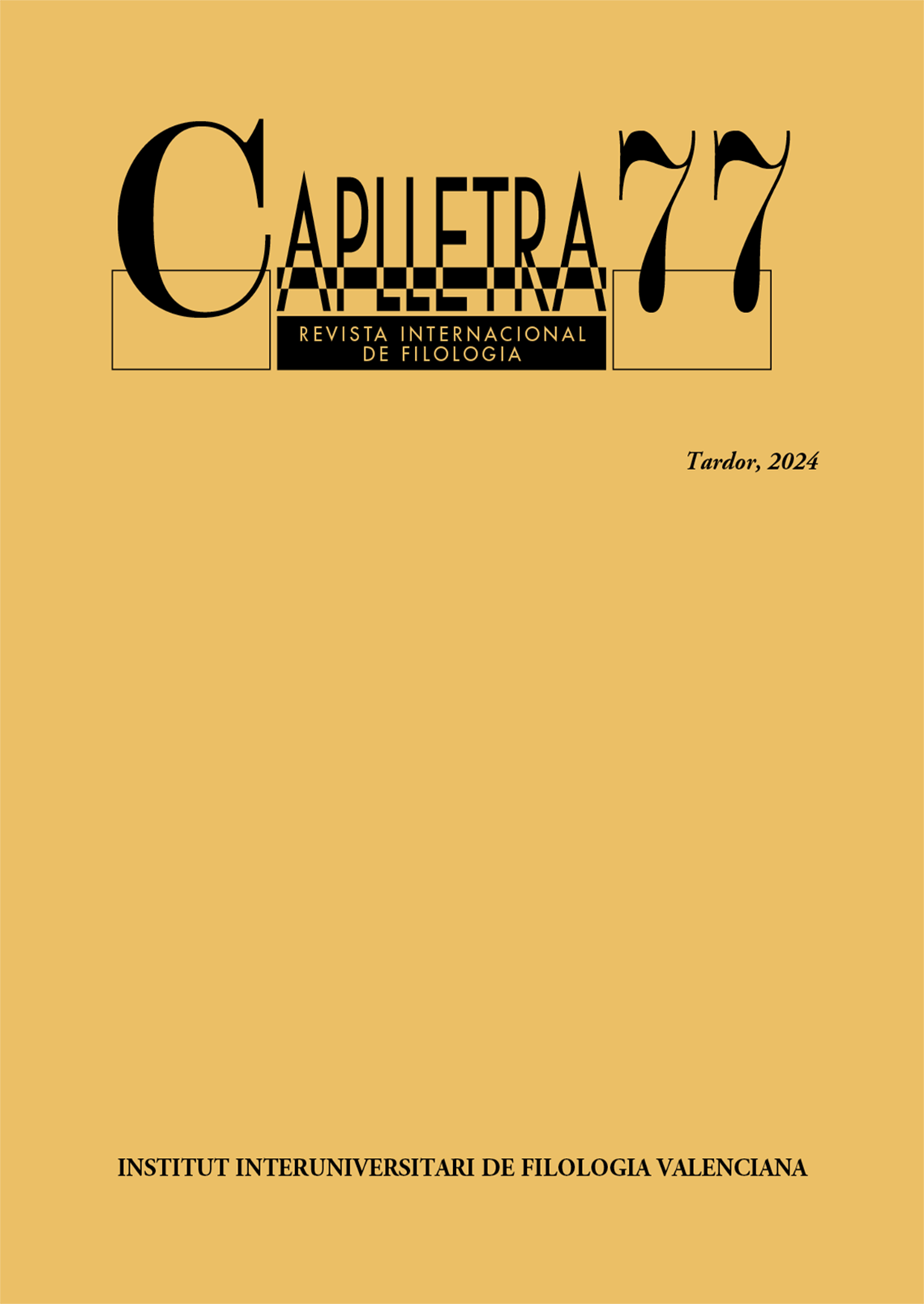Feminine sanctity against patriarchy: lives of «virtuous women» in the «Flos sanctorum»
DOI:
https://doi.org/10.7203/caplletra.77.28959Keywords:
Flos sanctorum, martyrs, women, hagiography, patriarchy Abstract
Abstract
The Flos sanctorum, also known as the Legenda aurea, the original version of which was elaborated by the Dominican Iacopo da Varazze during the second half of the 13th century, is a compilation of the lives of saints ordered according to the calendar Roman liturgical. Many of these stories are dedicated to virtuous women who, because of their faith and the decisions it makes about their bodies and their existence, are martyred by men who represent established male power. Most of these narratives, especially in the case of the martyrs of the first centuries of Christianity, start from a similar scheme that is based on a confrontation between these women (who reject marriage, motherhood, social invisibility or illiteracy guided by a faith that liberates them) and those male figures who want to subjugate them, such as fathers, brothers, spouses or imperial representatives. The aim of this work is to study some of the cases of this confrontation from the lives of some of the most popular saints, such as Saint Agueda, Saint Barbara, Saint Lucia, Saint Agnes, Saint Margaret, etc. based on the texts that appear in the Catalan translation of Flos sanctorum.
 Downloads
Downloads
Downloads
Published
How to Cite
-
Abstract68
-
PDF (Català)21
Issue
Section
License
Copyright (c) 2024 Caplletra. Revista Internacional de Filologia

This work is licensed under a Creative Commons Attribution-NonCommercial-NoDerivatives 4.0 International License.
Authors submitting work to Caplletra for publication must be the legitimate holder of the usage rights. Legitimacy for the purposes of publishing the work must also include images, tables, diagrams and any other materials that may complement the text, whether they are the author of such material or not.
Copyright: on publishing their work in the journal, the author grants Caplletra. Revista Internacional de Filologia usage rights (reproduction, distribution and public communication) for both the paper printed version and for the electronic version.
All work published in Caplletra is covered by the Creative Commons license type Attribution-NonCommercial-NoDerivatives 4.0 (CC BY-NC-ND 4.0).
RESPONSABILITY
Caplletra. Revista Internacional de Filologia does not necessarily identify with the points of view expressed in the papers it publishes.
Caplletra. Revista Internacional de Filologia accepts no responsibility whatsoever for any eventual infringement of intellectual property rights on the part of authors.






